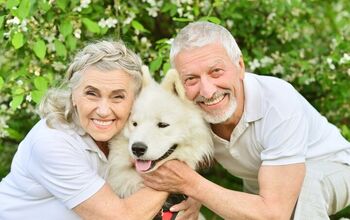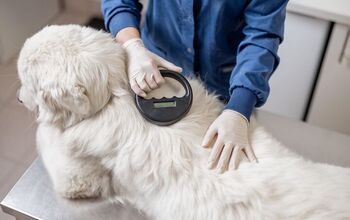New Research Suggests Genetics May Decide How Long Dogs Live

Researchers at the Department of Ethology at Eötvös Loránd University in Budapest, Hungary, examined the genes of two dogs who lived to be 22 and 27 years old and found that there is information in their genes that may decide their propensity to live longer lives.
Related: Is One Human Year Equal to 7 Canine Years? Debunking the Dog Age Myth
Dávid Jónás is a research fellow at the Department of Ethology and the study author. In an interview with TODAY, said that if pets lived longer and healthier lives, it would positively impact the dogs and their owners. We heartily agree.
The findings were published in a paper in Frontiers in Genetics, and detailed the genome analyzation of two dogs. Kedves was a 22-year-old female and Buksi was a 27-year-old male. Neither is alive anymore. The researchers sequenced the dogs’ DNA, looking for genetic similarities of the ‘Methuselah Dogs’ that might explain why they lived so long.
Jónás said that they used whole-genome sequencing methods and this was the first study investigating genetic background of aging dogs to do so. They found genes that are most likely linked to longer longevity in dogs. The science behind it is complicated, but the gist is that there are some mutations that may have interrupted gene functions for the longer life of the dog. Some genes that overlapped in the dogs were ones that are related to inflammation, immunity and Alzheimer’s in humans.
Related: New Company Claims Age-Reversal Treatment in Dogs Will Also Benefit Humans
The findings are what they are basing further research on as they look to research a larger sample size of dogs and see if there is a way to fine-tune genetics in order to have the longevity genetics expressed. This is pertinent information for dog breeders, as the goal is to create healthy dogs. While breeders do breed dogs to look certain ways or to express one trait over another, more understanding of how genetics play in longevity might also affect breeding practices. Instead of breeding for creamier coats, people may instead breed for dogs who will live longer.
Additionally, learning more about how dogs live longer lives can help us as humans too, Jónás says, as we share the same environments.

More by Lori Ennis























